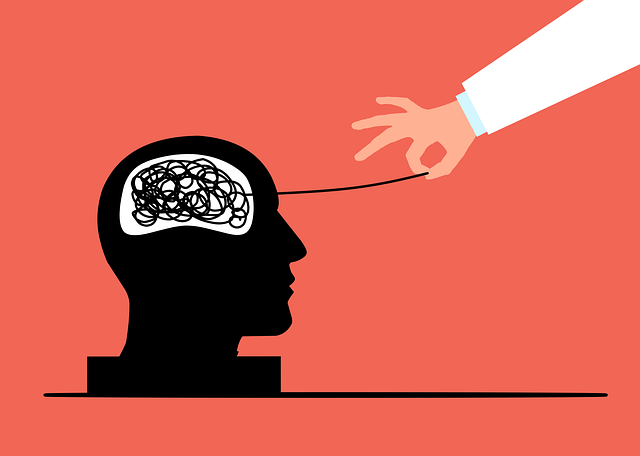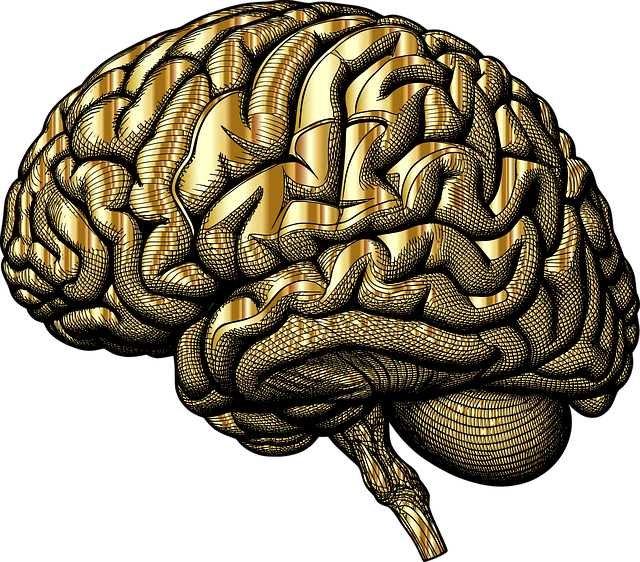Mental wellness is a holistic state of thriving, managing challenges, and contributing to communities, crucial in today's fast-paced world. Early detection through Aurora Mental Health Evaluations (AMHE) and evidence-based therapies like Social Skills Training and Depression Prevention empower individuals with resilience, positive choices, and healthy relationships. AMHEs provide detailed psychological snapshots for tailored therapy plans. Additional techniques, such as CBT and mindfulness-based practices, treat common mental health disorders and enhance overall well-being. Self-care, including activities like meditation and journaling, is vital for mental wellness, fostering familiarity and resilience through therapeutic principles. Building supportive communities with group therapy and support groups further enhances emotional well-being by offering peer connections, validation, and encouragement.
Mental wellness is an essential aspect of our overall well-being, impacting every area of daily life. In this comprehensive guide, we explore strategies to promote and maintain mental health. We delve into the significance of understanding mental wellness, its impact on daily functioning, and how Aurora Mental Health Evaluations play a pivotal role in early detection. Additionally, we cover various therapy types, self-care practices, and the power of building supportive communities for better mental health. Discover practical tips to enhance your mental wellness journey with these evidence-based approaches.
- Understanding Mental Wellness and Its Impact on Daily Life
- The Role of Aurora Mental Health Evaluations in Early Detection
- Types of Therapy for Promoting Mental Wellness
- Integrating Self-Care Practices into Your Routine
- Building a Supportive Community for Better Mental Health
Understanding Mental Wellness and Its Impact on Daily Life

Mental wellness is a holistic state of being where individuals realize their own potential, can cope with the normal stresses of life, work productively, and are able to contribute to their communities. It encompasses not just the absence of mental illness but also the presence of positive emotional well-being, strong social connections, and effective coping strategies. In today’s fast-paced world, understanding and prioritizing mental wellness is crucial for navigating daily challenges and maintaining overall health.
The impact of mental wellness on daily life is profound. Individuals who prioritize their mental health are better equipped to handle stress, make positive decisions, and maintain healthy relationships. Aurora Mental Health Evaluations play a vital role in identifying potential issues early, providing platforms for individuals to assess and understand their emotional state. Therapy, including Social Skills Training and Depression Prevention programs, offers evidence-based strategies for cultivating positive thinking and building resilience. By integrating these practices into our lives, we can foster a sense of balance and promote mental wellness that supports our overall well-being.
The Role of Aurora Mental Health Evaluations in Early Detection

Aurora Mental Health Evaluations play a pivotal role in early detection and promotion of mental wellness. These comprehensive assessments provide a detailed snapshot of an individual’s psychological state, allowing therapists to tailor therapy plans that address specific needs. By integrating Aurora Mental Health Evaluations into routine care, healthcare providers can identify emerging mental health issues at their earliest stages, when interventions are most effective.
Beyond traditional therapy, Emotional Well-being Promotion Techniques often incorporate these evaluations as a foundation for developing targeted coaching programs. Such programs not only help individuals manage existing conditions but also foster resilience and coping strategies to prevent future episodes. As part of broader Mental Illness Stigma Reduction Efforts, early detection through Aurora Mental Health Evaluations contributes to creating more inclusive environments where people feel comfortable seeking support for their mental health.
Types of Therapy for Promoting Mental Wellness

Promoting mental wellness involves a variety of therapeutic approaches tailored to individual needs. Aurora Mental Health Evaluations offer comprehensive assessments to identify specific challenges and guide patients toward effective solutions. One prominent method is cognitive-behavioral therapy (CBT), which helps individuals challenge negative thought patterns and develop healthier coping mechanisms. This evidence-based practice has shown significant results in treating anxiety, depression, and other common mental health disorders.
Additionally, mindfulness-based therapies, such as meditation and yoga, are gaining traction for their ability to enhance emotional regulation and overall well-being. These practices encourage individuals to focus on the present moment, fostering a sense of calm and improving stress management. Public awareness campaigns play a crucial role in normalizing conversations about mental health, while Mental Wellness Coaching Programs aim to empower people with tools for long-term self-care and resilience.
Integrating Self-Care Practices into Your Routine

Integrating self-care practices into your daily routine is a vital step towards cultivating mental wellness, much like Aurora Mental Health Evaluations therapy sessions illuminate and guide individuals toward healing. It’s not just about taking time for yourself; it’s about prioritizing your emotional, psychological, and physical well-being. Start by identifying what nourishes your mind and body—be it meditation, yoga, spending time in nature, or engaging in creative pursuits. Incorporate these practices consistently, even if it’s just a few minutes each day. Consistency breeds familiarity and comfort, which can significantly enhance your mental health.
Consider the power of journaling as a mental wellness journal exercise guidance—writing down thoughts, emotions, and experiences can help clarify them and provide valuable insights. Similarly, cultivating inner strength development through self-care allows you to face life’s challenges with resilience, rooted in the mind over matter principles that guide many therapeutic practices. By seamlessly integrating these habits into your routine, you’re taking proactive steps toward maintaining optimal mental health, leveraging the support of Aurora Mental Health Evaluations therapy alongside your personal coping strategies.
Building a Supportive Community for Better Mental Health

Building a supportive community is a powerful tool for enhancing mental wellness. In many ways, the environment we surround ourselves with significantly influences our emotional well-being. A sense of belonging and connection to others can provide comfort, reduce feelings of isolation, and foster resilience. This is especially crucial for individuals navigating mental health challenges like anxiety or depression, where social support acts as a protective factor, aiding in coping mechanisms and recovery processes.
Aurora Mental Health Evaluations and Therapy recognizes the importance of community in promoting holistic healing. Through group therapy sessions and support groups, individuals can gain access to a network of peers facing similar struggles. This shared experience creates an environment conducive to building confidence, honing communication strategies, and mastering social skills—all essential elements for maintaining good mental health. By fostering connections that provide emotional validation, encouragement, and understanding, communities become powerful allies in the journey towards improved mental wellness.
Promoting mental wellness is a multifaceted endeavor that requires understanding, early detection, and comprehensive support. By integrating Aurora Mental Health Evaluations to assess well-being, individuals can access tailored therapy options, from cognitive behavioral therapy to mindfulness practices. Self-care plays a crucial role in maintaining mental health, while building supportive communities further strengthens the framework for overall wellness. With the right resources and mindset, everyone has the potential to thrive.














